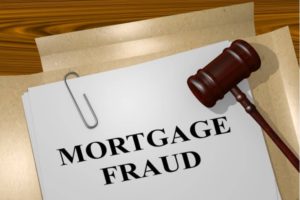Be one step ahead and discover red flags that may indicate any of the different types of mortgage fraud so you won’t be a victim yourself and avoid getting yourself entangled in any fraudulent agreements.
Mortgage fraud can be a criminal offence when someone – you, a mortgage broker or agent, a real estate agent or a lawyer – misrepresents, lies or exaggerates information to obtain a mortgage that would not have been granted if the truth had been told. According to Equifax*, suspected fraudulent mortgage applications have increased by 52 per cent in Canada since 2013, with Ontario seeing the majority. Mortgage fraud can also occur when unscrupulous people in the home buying process take advantage of homebuyers by charging unlawful fees or inflated interest rates.
Recent changes to interest rates and borrowing rules might make it harder to reach your home-buying dreams, however, it’s important to recognize what potential mortgage fraud looks like, understand the consequences, and know how to report it and stay safe.
It may be mortgage fraud if …
- Client delays, makes excuses or will simply not provide photo ID, when requested
- Land title records do not match with seller information
- Buyers’ or sellers’ names are only partially indicated – last name appears without a first name or the first name is indicated by only an initial
- Client attributes name differences to inconsistent or improper English translation of names
- Buyer purchases property far from place of employment for no apparent reasons
- Buyer is purchasing many properties with high ratio mortgages, using different names or variations of his/her name
- Source of deposit cheques is other than buyer
- Deposit is provided in cash or by money order
- Showing the value of an appraisal to be much more than what it is actually to get a mortgage above what the property is actually worth
- Claiming assets that the person does not really own
- Acting as the borrower when the actual borrower is someone else
- Pretending to give someone financial help with the hope of skimming off equity
- Buyer purchases investment property, yet does not own a principal residence
- Parties have no formal office; communication is by cell phone, email and fax; meetings are scheduled at restaurants
- Buyer or seller is represented by a person acting on a power of attorney
- Quick succession of trades on one property
- One lawyer represents both parties to the transaction
- Immediate possession dates
- Firm transaction with none of the usual conditions
- No counter offer
- Names appear to have been added to or deleted from the contract
- Not all parties named on the contract have signed it
- Schedules or addendums exist but are not indicated in the contract, or, schedules or addendums do not reference the originating contract
- There is no real estate agent involved in the process
- The mortgage payment is made by an entity and not a borrower
- The income and savings of the applicant do not match with the overall profile of the applicant
- The signatures in the file don’t match and are inconsistent
- The buyer does not have any intentions of actually living in the property due to any reasons that he might give. These can be the size or condition of the property. This can also be called occupancy fraud
The best way to avoid common types of mortgage fraud is to educate yourself about all the types of mortgage fraud that can happen. Once a person is fully aware of how he can be cheated, he will be more careful and will also look for red flags before actually entering into any sort of agreement.
A person who is well aware of the different types of mortgage scams out there will know exactly what they have to look out for.
It is also highly advisable to get help from qualified real estate professionals who can help in his regard. Those who have been in this field for a while know exactly how to stay safe from such fraudulent acts and what to be aware of. Law enforcement agencies and other financial institutions exist too, that can help reduce the risks associated with this type of fraud.
Contacts for More Information:
Ontario Ministry of Government Services (Consumer Services Bureau): 416-326-8800 or
www.gov.on.ca/mgs
Canadian Institute of Mortgage Brokers and Lenders: 416-385-2333 or www.cimbl.ca/fraud_intro.htm
Canadian Bankers Association: 416-362-6092 or www.cba.ca
Contact your local police department for specific concerns or cases
(Source: Compiled with information from the Real Estate Council of Alberta and chrismathers inc. crime and risk consulting)


